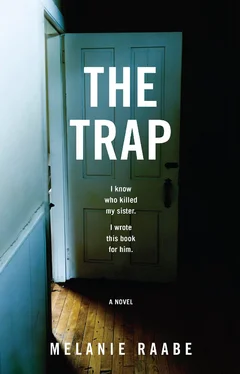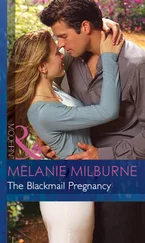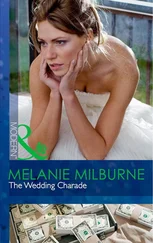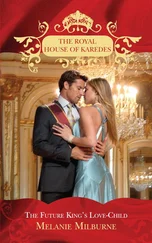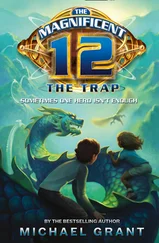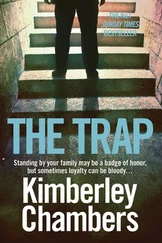Lenzen makes a noise of disparagement. I find it hard to stop myself from pouncing across the table at him and slapping him in the face. But I suppress the impulse. I decide to let him ask, not to interrupt him. I’m learning more from his questions than from his answers.
“I have the feeling that Britta is an awful goody-two-shoes,” Lenzen continues. “That flashback where she tries to persuade her sister to stop wearing leather for the sake of the animals — it seemed to me almost like a parody. Britta’s constantly taking other people to task and telling them what to do. I know you depict that in a positive light in your novel, but in real life, people like that get on your nerves and certainly aren’t idolized the way they are in your book — if such flawless people even exist, that is. But how do you see it?”
I gasp for breath, make a huge effort not to let him provoke me. The bastard.
“I think there are people like Britta,” I blurt out. “I think there are very good and very evil people and everything in between. It’s possible that we’re so obsessed by the nuances and the in-between that we block out the people at either end of the scale. We call them clichés or unrealistic. But there are people like that. Very few, of course.”
“People like your sister?” Lenzen asks.
The temperature in the room soars. I break out in a sweat.
“What?”
“I have the feeling that we’re talking about your sister here.”
“Really?”
The white of the wall opposite shimmers before my eyes.
“Yes, just a thought. Correct me if I’m wrong. But you’ve written this unbelievably idealized version of the relationship between two sisters, and you have a sister you say you weren’t able to save. Maybe she’s dead. Maybe you mean ‘save’ in a figurative sense — you’re a writer, after all. Maybe you weren’t able to save her from drugs or from a violent man.”
“What makes you think that?” Salty saliva collects in my mouth.
“I don’t know. You’re obviously very fond of this character, Britta, despite the fact that she’s so awful,” says Lenzen.
“Awful?”
Suddenly I have the most extraordinary headache. The wall opposite seems to be bulging toward me as if there were something trapped in there that was trying to get out.
“Yes!” says Lenzen. “So good, so beautiful, so pure. A proper Disney princess. In real life, a woman like that would be unbearable!”
“You think?”
“Well, I certainly find it astonishing that the older sister — what’s she called again? Sorry…” My head is bursting.
“Sophie,” I say.
“That Sophie gets on so well with the character. When Britta tells her sister that her fiancé’s not good enough for her. When she goes on and on to her about her great new job. When she’s constantly nagging her about her weight and her appearance. Perfect Britta — the Disney princess up on her high horse. Seriously, if I were a woman — if I were Sophie — Britta would annoy me more. I might even detest her.”
I did, too, I think.
The realization is a blow to me. Where did that come from? It’s not new — I can feel it. It’s a thought I’ve had more than once before, but subliminally. On the far side of pain.
What kind of a person are you, Linda?
I shouldn’t think the thought, but I think it again. Yes, I detested her. Yes, she was smug. Yes, she was arrogant. Yes, she was always up on her high horse — Saint Anna. Anna, who could always wear white without spilling on it. Anna, for whom men wrote poems. Anna, for whom Marc would have left me, if she had wanted him, as she never tired of reminding me. Anna, whose hair smelled of shampoo even after a camping trip. Anna, whose name you could read backward as well as forward — Anna, Anna, Anna.
What’s going on here?
I struggle free, I surface, and I’m thinking straight again. I know what I’m up against; it’s my guilty conscience — nothing but my guilty conscience, base and insidious. My guilt at not being able to save Anna. It’s gnawing away at me, and to avoid being gnawed quite to pieces, my brain looks for a way out, even if it’s as mean and shabby as the thought that my sister wasn’t all that good.
How shabby, too, and mean, what Lenzen’s just tried to do. And how shabby and mean of me to fall for it. I’m too agitated, too exhausted, too impressionable. My head is throbbing. I must pull myself together. Lenzen has taken one of my castles, but my king and queen are still in play. I try to concentrate. And, as I collect myself, I realize what I’ve heard, what he’s said. The way he’s talking: it’s almost as if he harbors a personal grudge against her. Against Britta. Against Anna. And I realize something. My God.
It hadn’t occurred to me. I had always assumed that the police would have caught the culprit, if there had been any connection with Anna — if she hadn’t been an accidental victim. I thought that Anna had died because someone had taken advantage of a beautiful young woman who lived alone in a ground-floor flat and sometimes left her terrace door open. But maybe that wasn’t the case. Maybe it wasn’t cruel coincidence at all. Is it possible? Did Anna know the monster?
“Be that as it may,” Lenzen continues, “I was utterly fascinated by the description of the murder — that is to say, the chapter where Sophie discovers her sister. It’s terribly painful to read, very affecting. What was it like for you writing that scene?”
My right lower eyelid twitches. I can’t stop it.
“Difficult,” is all I say.
“Frau Conrads,” says Lenzen, “I hope you’re not under the impression that I don’t like your book because that’s not the case. The protagonist, Sophie, for instance, is a character I could wholeheartedly sympathize with for long stretches of the novel. There are, however, a few things that strike me as anomalous, so that I am, of course, thrilled to be able to take this unique opportunity to ask the author why she depicted things one way rather than another.”
“Oh yes?” I say. It takes me a moment to get my nausea under control; I have to gain time. “What strikes you as anomalous, apart from the murder victim?”
“Well, the murderer, for example.”
“Really?”
Now it’s getting interesting.
“Yes. The killer is portrayed as a soulless monster — a typical psychopath. Then the gimmick that he must leave something at the scene of the crime — from a writer of the caliber of Linda Conrads, I’d have expected a more subtly drawn character.”
“There are sociopaths,” I say.
I’m sitting right opposite one. I don’t say that.
“Of course, sure. But they’re extremely rare, even if ninety percent of all detective stories and thrillers seem to revolve around criminals of that kind. Why did you decide on such a one-dimensional character?”
“I believe that evil, like goodness, really exists. I tried to convey that.”
“Evil? Really? Isn’t there evil in all of us?”
“Maybe,” I say. “In some measure.”
“What is it that fascinates you about criminals like the one in your book?” Lenzen asks.
“Nothing at all,” I say.
I almost spit the words.
“Nothing at all. A cold, sick soul like the murderer in my book holds no fascination for me whatsoever. Only the possibility of making sure that he ends up behind bars for the rest of his life.”
“In literature, at least, you can make sure of it,” Lenzen smirks.
I say nothing.
You wait and see, I think.
See what? another part of me thinks. How?
“Wouldn’t a more complex psychological motive have been more interesting?” Lenzen continues.
It’s been clear to me for some time that he’s no longer talking about my book but about himself — that he’s maybe even trying to justify himself. I know that, he knows that, and each of us knows that the other one knows. Maybe I should speak out, at last. Sweep all the metaphors and circumlocutions off the table.
Читать дальше
